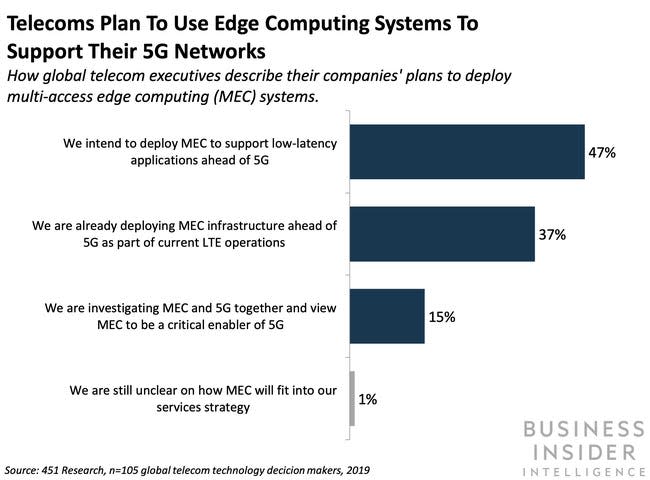AWS's new partnership with network operators will help enable latency-sensitive 5G applications
Amazon Web Services (AWS) announced this week that it partnered with four major network operators — Verizon, SK Telecom, Vodafone, and KDDI — to launch its new 5G edge computing service, AWS Wavelength.

AWS Wavelength, which is already live in select markets, allows enterprises to deploy AWS cloud service applications at the edge of a 5G network hosted by one of its telecom partners. Developers can then build 5G edge applications using AWS Wavelength, an extension of the AWS portal. Amazon reports that Wavelength has the capability to provide single-digit millisecond latencies to end users.
Bringing cloud capabilities to the edge of networks is particularly important for enabling latency-sensitive 5G applications. Several of the most promising 5G use cases are data-intensive and latency-sensitive. For instance, a single driverless car is expected to generate more than 4 terabytes of data per day, and much of this data will be shared across edge networks to enable vehicle to everything (V2X) technologies, according to McKinsey and Intel.
V2X applications such as preventative crash camera systems would only be effective with reliable, lightning-fast connections. Other latency-sensitive use cases include autonomous industrial equipment, cloud-based gaming, and streamed AR/VR content.
Here's what network operators and cloud service providers stand to gain in forging partnerships with each other:
For network operators, a cloud partnership can attract developers to build network-specific 5G applications on an already familiar interface. To bring existing AWS functionality onto the edge, enterprises will need to work alongside the network operator partners that support AWS Wavelength. In an interview with Business Insider Intelligence, Bill Stone, Verizon's VP of technology and planning, said that giving the developer community that "already has access through the AWS portal the opportunity to take advantage of Verizon Edge is a great head start for both Verizon and AWS" when it comes to deploying cloud computing services on the edge. He also told us that this opportunity would scale as Verizon deploys the platform to other parts of the US in 2020 and beyond.
For cloud service providers, partnerships with network operators extend cloud services to the edge for enterprise clients. As enterprises begin deploying data-intensive 5G solutions, cloud providers must add edge connectivity services to their existing lineup to ensure they can deliver the speeds and service offerings that clients will expect. Partnering with network operators can enable this, and it's an approach other major cloud players are already taking: In July 2019, for instance, Microsoft's Azure committed to a cloud platform deal with AT&T through 2024, which includes the joint development of edge computing technologies. These partnerships act as an extension of the services arms race between big cloud companies, as cloud services are only valuable insofar as they can be accessed by end users quickly and easily.
Read the original article on Business Insider

